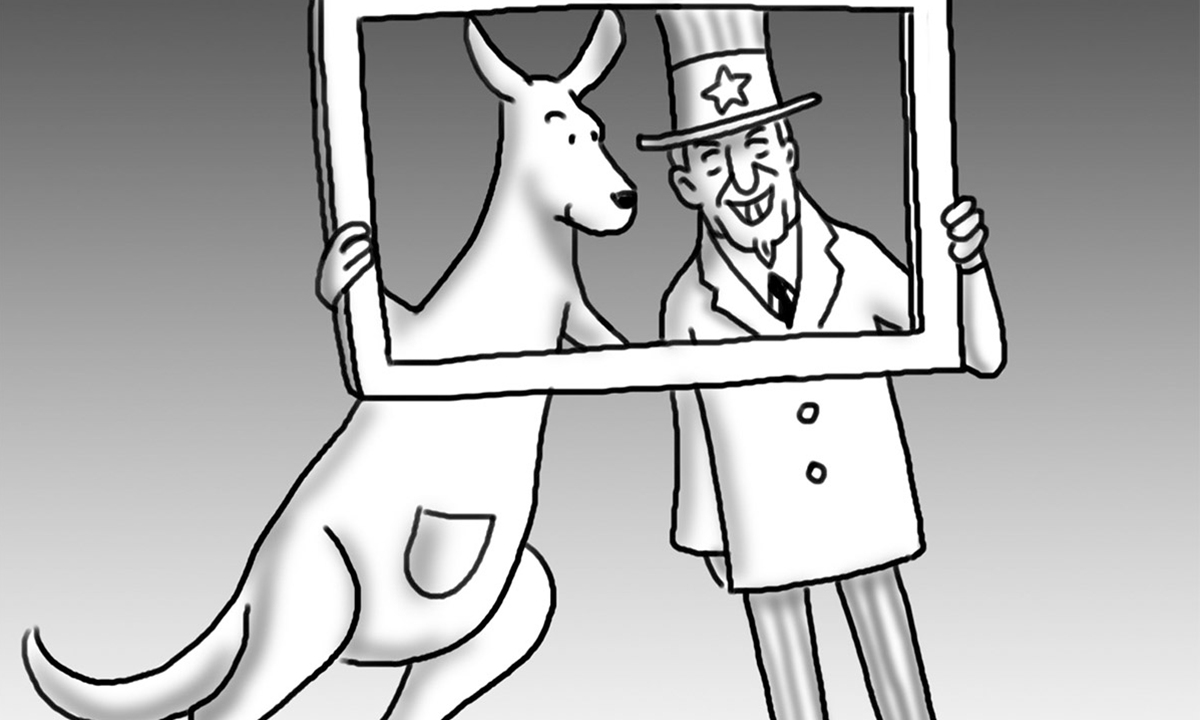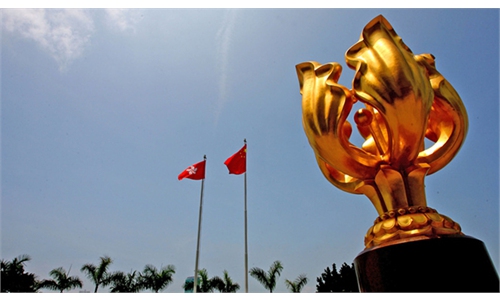
Illustration: Liu Rui/GT
US Secretary of State Mike Pompeo and Secretary of Defense Mark Esper on Monday and Tuesday met Australian Foreign Minister Marise Payne and Defense Minister Linda Reynolds. They co-hosted the 2020 Australia-US Ministerial consultations. Their joint statement basically repeated Washington's tone of containing China, except that the wording was milder.
Pompeo said at a press conference afterwards that "This isn't about picking America versus China. This is about choosing freedom and democracy against tyranny and an authoritarian regime." Such incitement is already a cliché familiar to Westerners.
Washington has been mobilizing the Western world to launch the new cold war against China. But the general response from its allies is to cope with the call coldly and dodging it. The US could not find a way to strike a chord while facing resistance to its efforts to boycott Chinese tech giant Huawei, so it can only hype ideological differences. The US appears to have suffered a setback.
Fortunate for Washington, Australia is willing to save the US' face by sending two ministers to the US while COVID-19 infections are surging there. The two ministers will have to undergo two-week self-quarantine after going back to Australia. Canberra is trying hard to show its loyalty to Washington.
Payne stressed the country has no intention of hurting relationship with China. It sounds so hypocritical. Australia has always been at the forefront of US containment against China, completely following the US' lead. It will bite China as long as the US tells it to. Payne's remarks sound like telling China: the US told me to bite you. I have no choice. But this should not hurt our relationship.
The US and Australia's joint statement said the two countries are "working side-by-side," including with ASEAN, India, Japan, South Korea and "Five Eyes partners" to strengthen their "networked structure of alliances and partnerships." This is just self-comforting. Turning the Five Eyes alliance, the Quadrilateral Security Dialogue and ASEAN into an anti-China structure may be even more difficult than the Trump administration's three-term reelection. Washington seems to treat all countries as building blocks in its hands.
Washington is hysterically instigating a new cold war against China, while most countries are dealing with it passively. It's indeed unpopular for Washington to make its China policy crazy and force other countries to take sides. It is doomed to face many difficulties as there is no driving force for its implementation.
Under such a situation, the most important thing for China is not to make mistakes. China should avoid providing any chance that can be used by the US in its anti-China mobilization campaign in the West. As long as China responds properly to the US' provocations, keeps in mind its strategic goals, and doesn't allow the US to dominate the interaction between the two sides, US efforts will be in vain.
There is much room for China to encourage Western countries to continue their passive attitude in following the US' anti-China campaign. It's quite difficult for the US to persuade those countries to confront China at the cost of their own interests, like Australia has done. Some European countries have made statements over the Hong Kong issue, which China has refuted - just let this continue as no substantial conflicts have increased.
Australia is not 100 percent loyal. Tied to the US, Australia is barking at China, while at the same time looking for benefits from China.
China and neighboring countries should speed up to form a tacit understanding to maintain the status quo of territorial disputes. They should avoid collisions and ease disputes. China is the most powerful country in Asia. We have the ability to achieve such a tacit understanding, which will benefit all parties. Progress in this regard will greatly squeeze the room for the US to make waves around China.

